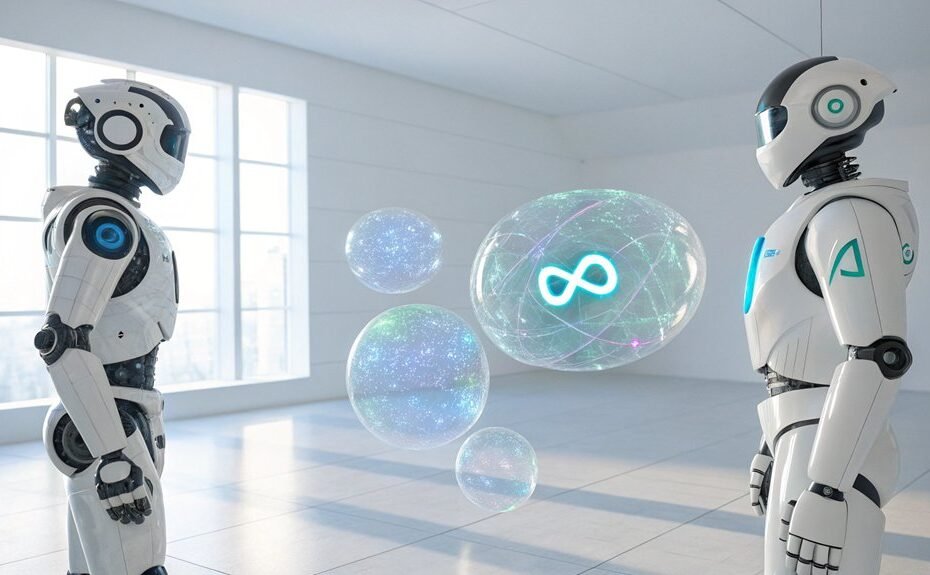Three key differences distinguish Meta AI from ChatGPT in 2025. Meta AI specializes in social media integration and real-time platform interactions within Meta's ecosystem, while ChatGPT offers broader cross-platform accessibility and extensive customization through custom GPTs. Meta AI excels at automated customer engagement and social content generation, whereas ChatGPT demonstrates superior capabilities in creative content and applications across diverse sectors including healthcare and legal. Further analysis reveals additional technological and practical distinctions between these AI platforms.
As artificial intelligence continues to evolve, Meta AI and ChatGPT have emerged as leading conversational AI platforms, each offering distinct capabilities and use cases. The first significant difference lies in their accessibility and integration approaches. Meta AI operates primarily within Meta's ecosystem, including Facebook and Instagram, providing deeply integrated experiences for users of these platforms. This integration enables Meta AI to generalize knowledge domains effectively, setting it apart from other AI systems.
Conversely, ChatGPT offers broader accessibility across multiple platforms and industries, making it more versatile for users regardless of their preferred digital environment. ChatGPT's emphasis on ethical alignment makes it particularly suitable for sensitive sectors like healthcare and legal advisory.
The second key distinction involves their specialized capabilities and focus areas. Meta AI excels in contextual understanding and real-time platform interactions, particularly in automating customer responses on Facebook Messenger and generating social media content. Its architecture combines deep learning and reinforcement learning to adapt quickly to user interactions within Meta's platforms.
ChatGPT, on the other hand, demonstrates superior capabilities in creative content generation, including articles, essays, and educational materials, while additionally offering advanced features like image generation and voice interaction capabilities.
The third major difference centers on customization and versatility. ChatGPT provides extensive customization options through tools like custom GPTs, allowing users to tailor the AI's functionality to specific needs across various industries. This flexibility permits applications in diverse sectors, from customer service to creative writing.
Meta AI, while powerful within its ecosystem, offers more limited customization options, focusing instead on delivering personalized experiences specifically within Meta's platforms. The platform's strength lies in its deep integration with Meta's services, making it particularly effective for users who primarily operate within the Facebook and Instagram environment.
Most-Asked Questions FAQ
Will Meta AI and Chatgpt Be Able to Integrate With Each Other?
Integration between Meta AI and ChatGPT appears unlikely because of technical barriers, competitive market positions, and absence of collaboration intent from either Meta or OpenAI's development teams.
How Much Will Meta AI Cost Compared to Chatgpt's Subscription Plans?
Meta AI's pricing remains less transparent, with a mix of free and premium features, while ChatGPT offers clear subscription plans starting at $20 monthly for individual users and businesses.
Can Meta AI Access Real-Time Social Media Data From Facebook?
Meta AI can access real-time public data from Facebook and other Meta platforms, though it cannot access private posts or messages within the social media ecosystem.
Will Meta AI Offer Multilingual Support in More Languages Than Chatgpt?
Meta AI currently supports 101 languages with speech translation capabilities, surpassing ChatGPT's language offerings. Its SeamlessM4T model provides broader coverage, especially for low-resource languages through NLLB-200 technology.
Which AI Model Will Have Better Data Privacy and Security Features?
ChatGPT demonstrates stronger data privacy features with end-to-end encryption and customizable retention policies, while Meta AI's integration within social platforms raises more significant privacy and surveillance concerns.
